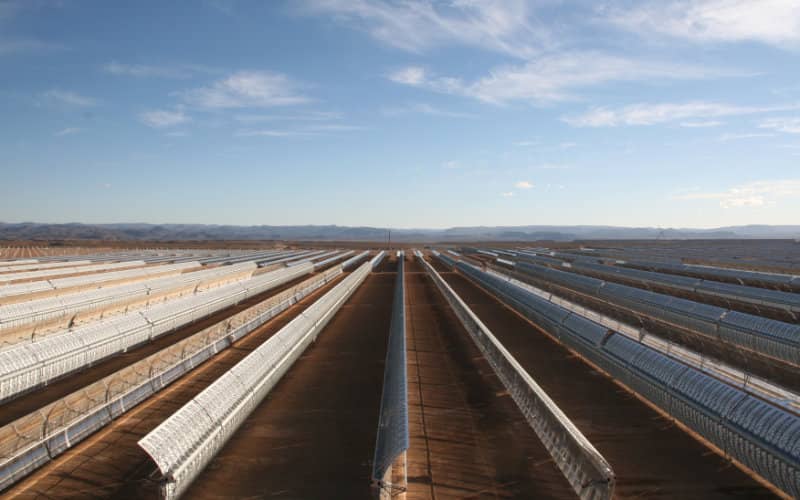Morocco Accelerates Renewable Energy Push After Gas Pipeline Closure

Since the announcement of the Algerian decision not to renew the concession contract for the Maghreb-Europe gas pipeline (GME) which crosses Morocco before serving Spain, the Moroccan authorities are accelerating the implementation of the policy to promote renewable energies, particularly photovoltaic, in order to ensure energy supply.
The breakdown of diplomatic relations between Algeria and Morocco has affected the latter, who lost the 7% of gas he benefited from as toll in the Maghreb-Europe gas pipeline. This situation forces the kingdom to resolutely turn to renewable energies to continue to ensure the energy supply to Moroccans. For several years, Morocco has embarked on a policy of promoting these energies with the commissioning in 2016 of a large solar power plant in the Ouarzazate region. This, thanks to the NOOR project which made it possible to produce solar energy for 320 days a year.
To read: Morocco to Lead UN Advocacy for Renewable Energy Innovation and Climate Goals
Photovoltaic is therefore a sustainable solution for countries like Morocco that do not have natural resources like gas. And the kingdom has well understood the stakes of solar by aiming to increase its renewable energy production capacity to 52% by 2030. "Morocco’s geographical position is particularly interesting. It can easily become a hub, market our products in Europe and the rest of the African continent," explained Thierry Poitout, a French investor who has created his photovoltaic companies in Morocco: Solarmen, a company specializing in the installation of photovoltaic systems in 2015, and more recently, SolarExport, specialized in the import and distribution of photovoltaic panels and equipment.
To read: Morocco’s Renewable Energy Shift to Create Nearly 500,000 Jobs by 2044, Study Finds
To carry out this policy of promoting renewable energies, Morocco created MASEN in 2010, a specialized unit responsible for enhancing the kingdom’s renewable technologies and resources. "The integrated project development programs led by MASEN aim in particular to develop an additional capacity of clean electricity production of 3,000 megawatts (MW) by 2020 and 6,000 MW by 2030," said the managers of this agency, specifying that the ultimate goal is to liberalize the market and give private companies the opportunity and authorization to produce and sell solar energy. In this sense, the "Energipro" program offers the possibility for energy-intensive industries "to build renewable energy installations allowing them to cover a large part of their energy consumption".
To read: Morocco Aims for 52% Renewable Energy by 2030, Cutting Fossil Fuel Imports
"Our wish is to soon launch a program with Mauritania and to connect the entire West African area through renewable energies," announced Tarik Hamane, executive director in charge of development within MASEN, thus underlining the need for Morocco to continue to invest in photovoltaic to strengthen its role in the green revolution and become the leader of the Maghreb in renewable energies.
Related Articles
-

Chinese Steel Giant Clinches Morocco’s High-Speed Rail Contract, Boosting World Cup 2030 Infrastructure
3 September 2025
-

Mediterranean Shipping War: French Lawmakers Blast Italian Giant’s ’Predatory Dumping’
2 September 2025
-

Solo Traveler’s Moroccan Dream: Tamraght’s Hidden Coastal Charm Captivates Digital Nomads
2 September 2025
-

Morocco’s Airport Duty-Free Zones Spark Outrage: Dirham Debit Cards Rejected, Consumers Demand Change
1 September 2025
-

Morocco Braces for Fuel Price Drop: Diesel Could Plunge 30 Cents, Bringing Relief to Drivers
1 September 2025